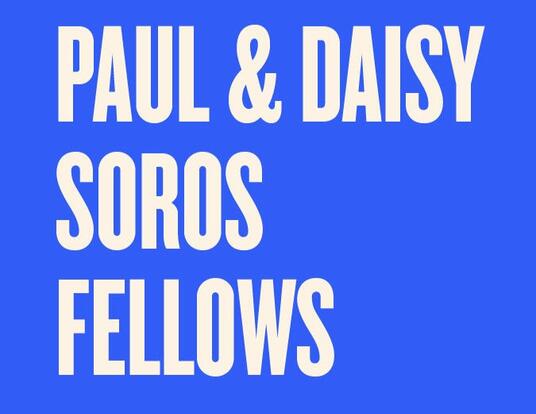Évitez les fautes dans vos écrits académiques
Évitez le plagiat gratuitement, faire une bibliographie gratuitement.
- Dissertation

Conclusion de dissertation de philosophie
Publié le 18 février 2019 par Justine Debret . Mis à jour le 26 mars 2020.
La conclusion de votre dissertation de philosophie est le dernier élément que lira votre évaluateur. Il est important qu’elle soit percutante et donne une réponse claire à votre problématique de départ qui a été dévoilée en introduction .
Note : Scribbr peut corriger votre dissertation de philosophie.
Table des matières
Quelle est l’utilité d’une conclusion de dissertation de philo , la structure d’une conclusion de dissertation de philosophie, exemple de conclusion de dissertation de philosophie.
La conclusion d’une dissertation de philo sert à résumer votre devoir et à donner votre réponse définitive à la problématique.
Vous avez exposé un problème en introduction et avez étudié ce problème dans le développement. En conclusion, vous devez lui apporter une solution.
Attention ! Il est strictement interdit d’insérer des exemples ou des arguments dans la conclusion. Il ne faut pas ajouter de nouveaux éléments.
Combien de fautes dans votre document ?
Nos correcteurs corrigent en moyenne 150 fautes pour 1 000 mots . Vous vous demandez ce qui sera corrigé exactement ? Déplacez le curseur de gauche à droite !

Faites corriger votre document
Voici la structure que doit suivre votre conclusion…
1. Rappel de la problématique.
Votre lecteur n’a probablement plus à l’esprit votre problématique de départ. Il vous faut la lui rappeler.
2. Le bilan de votre raisonnement (de vos parties).
Vous devez rappeler le plan suivi en synthétisant l’essentiel de chaque grande partie. Il faut montrer comment les idées s’enchaînent pour aboutir à votre réponse au problème.
3. La réponse finale à la problématique.
Indiquez le message central de votre raisonnement en donnant de façon claire et explicite votre solution à la problématique.
4. Une ouverture.
La conclusion peut ouvrir vers d’autres problèmes ou thématiques. Il s’agit d’une relance de la réflexion qui est facultative.
Sujet : Etre libre, est-ce faire ce que l’on veut ?
Pour conclure, notre raisonnement a questionné l’essence de liberté de l’être humain. L’Homme semble tout d’abord être un individu « libre » qui place sa raison au fondement de ses jugements et actions. Il semble posséder une liberté qui lui permet d’être responsable de sa personne, ainsi que de ses actes de manière rationnelle. Or, l’Homme est aussi un individu complexe qui finalement se révèle être contrôlé par des entités qui sont supérieures à sa propre volonté rationnelle et qui la contrôlent. En effet, sa nature (par les désirs et instincts), son psychisme (par l’Inconscient) et la société (grâce à l’éducation) sont des éléments qui le régissent et donc entrave la liberté personnelle du sujet. L’Homme semble donc s’illusionner sur sa capacité à désirer ou prendre des décisions rationnelles librement. Par conséquent, la question de la responsabilité de l’Homme se pose quant à son caractère coupable lorsqu’il commet des actes immoraux puisqu’il semble n’être pas libre et maître de sa propre volonté. Ainsi, il est possible de s’interroger sur la responsabilité des terroristes quant à leurs actes. Les frères Tsarnaev sont considérés comme étant responsables des attentats qu’ils ont commis le 15 avril 2013 lors du Marathon de Boston. Toutefois, on peut se demander s’ils étaient libres et conscients de leurs actions ou non.
Citer cet article de Scribbr
Si vous souhaitez citer cette source, vous pouvez la copier/coller ou cliquer sur le bouton “Citez cet article” pour l’ajouter automatiquement à notre Générateur de sources gratuit.
Debret, J. (2020, 26 mars). Conclusion de dissertation de philosophie. Scribbr. Consulté le 6 mai 2024, de https://www.scribbr.fr/dissertation-fr/conclusion-dissertation-philo/
Cet article est-il utile ?
Justine Debret
D'autres étudiants ont aussi consulté..., dissertation de philosophie, exemple de dissertation de philosophie, la méthode de la dissertation de philosophie .

- USF Research
- USF Libraries
Digital Commons @ USF > College of Arts and Sciences > Philosophy > Theses and Dissertations
Philosophy Theses and Dissertations
Theses/dissertations from 2023 2023.
Karl Marx on Human Flourishing and Proletarian Ethics , Sam Badger
The Ontological Grounds of Reason: Psychologism, Logicism, and Hermeneutic Phenomenology , Stanford L. Howdyshell
Theses/Dissertations from 2022 2022
Interdisciplinary Communication by Plausible Analogies: the Case of Buddhism and Artificial Intelligence , Michael Cooper
Heidegger and the Origin of Authenticity , John J. Preston
Theses/Dissertations from 2021 2021
Hegel and Schelling: The Emptiness of Emptiness and the Love of the Divine , Sean B. Gleason
Nietzsche on Criminality , Laura N. McAllister
Learning to be Human: Ren 仁, Modernity, and the Philosophers of China's Hundred Days' Reform , Lucien Mathot Monson
Nietzsche and Eternal Recurrence: Methods, Archives, History, and Genesis , William A. B. Parkhurst
Theses/Dissertations from 2020 2020
Orders of Normativity: Nietzsche, Science and Agency , Shane C. Callahan
Humanistic Climate Philosophy: Erich Fromm Revisited , Nicholas Dovellos
This, or Something like It: Socrates and the Problem of Authority , Simon Dutton
Climate Change and Liberation in Latin America , Ernesto O. Hernández
Anorexia Nervosa and Bulimia Nervosa as Expressions of Shame in a Post-Feminist , Emily Kearns
Nostalgia and (In)authentic Community: A Bataillean Answer to the Heidegger Controversy , Patrick Miller
Cultivating Virtue: A Thomistic Perspective on the Relationship Between Moral Motivation and Skill , Ashley Potts
Identity, Breakdown, and the Production of Knowledge: Intersectionality, Phenomenology, and the Project of Post-Marxist Standpoint Theory , Zachary James Purdue
Theses/Dissertations from 2019 2019
The Efficacy of Comedy , Mark Anthony Castricone
William of Ockham's Divine Command Theory , Matthew Dee
Heidegger's Will to Power and the Problem of Nietzsche's Nihilism , Megan Flocken
Abelard's Affective Intentionalism , Lillian M. King
Anton Wilhelm Amo's Philosophy and Reception: from the Origins through the Encyclopédie , Dwight Kenneth Lewis Jr.
"The Thought that we Hate": Regulating Race-Related Speech on College Campuses , Michael McGowan
A Historical Approach to Understanding Explanatory Proofs Based on Mathematical Practices , Erika Oshiro
From Meaningful Work to Good Work: Reexamining the Moral Foundation of the Calling Orientation , Garrett W. Potts
Reasoning of the Highest Leibniz and the Moral Quality of Reason , Ryan Quandt
Fear, Death, and Being-a-problem: Understanding and Critiquing Racial Discourse with Heidegger’s Being and Time , Jesús H. Ramírez
The Role of Skepticism in Early Modern Philosophy: A Critique of Popkin's "Sceptical Crisis" and a Study of Descartes and Hume , Raman Sachdev
How the Heart Became Muscle: From René Descartes to Nicholas Steno , Alex Benjamin Shillito
Autonomy, Suffering, and the Practice of Medicine: A Relational Approach , Michael A. Stanfield
The Case for the Green Kant: A Defense and Application of a Kantian Approach to Environmental Ethics , Zachary T. Vereb
Theses/Dissertations from 2018 2018
Augustine's Confessiones : The Battle between Two Conversions , Robert Hunter Craig
The Strategic Naturalism of Sandra Harding's Feminist Standpoint Epistemology: A Path Toward Epistemic Progress , Dahlia Guzman
Hume on the Doctrine of Infinite Divisibility: A Matter of Clarity and Absurdity , Wilson H. Underkuffler
Climate Change: Aristotelian Virtue Theory, the Aidōs Response and Proper Primility , John W. Voelpel
The Fate of Kantian Freedom: the Kant-Reinhold Controversy , John Walsh
Time, Tense, and Ontology: Prolegomena to the Metaphysics of Tense, the Phenomenology of Temporality, and the Ontology of Time , Justin Brandt Wisniewski
Theses/Dissertations from 2017 2017
A Phenomenological Approach to Clinical Empathy: Rethinking Empathy Within its Intersubjective and Affective Contexts , Carter Hardy
From Object to Other: Models of Sociality after Idealism in Gadamer, Levinas, Rosenzweig, and Bonhoeffer , Christopher J. King
Humanitarian Military Intervention: A Failed Paradigm , Faruk Rahmanovic
Active Suffering: An Examination of Spinoza's Approach to Tristita , Kathleen Ketring Schenk
Cartesian Method and Experiment , Aaron Spink
An Examination of John Burton’s Method of Conflict Resolution and Its Applicability to the Israeli-Palestinian Conflict , John Kenneth Steinmeyer
Speaking of the Self: Theorizing the Dialogical Dimensions of Ethical Agency , Bradley S. Warfield
Changing Changelessness: On the Genesis and Development of the Doctrine of Divine Immutability in the Ancient and Hellenic Period , Milton Wilcox
Theses/Dissertations from 2016 2016
The Statue that Houses the Temple: A Phenomenological Investigation of Western Embodiment Towards the Making of Heidegger's Missing Connection with the Greeks , Michael Arvanitopoulos
An Exploratory Analysis of Media Reporting of Police Involved Shootings in Florida , John L. Brown
Divine Temporality: Bonhoeffer's Theological Appropriation of Heidegger's Existential Analytic of Dasein , Nicholas Byle
Stoicism in Descartes, Pascal, and Spinoza: Examining Neostoicism’s Influence in the Seventeenth Century , Daniel Collette
Phenomenology and the Crisis of Contemporary Psychiatry: Contingency, Naturalism, and Classification , Anthony Vincent Fernandez
A Critique of Charitable Consciousness , Chioke Ianson
writing/trauma , Natasha Noel Liebig
Leibniz's More Fundamental Ontology: from Overshadowed Individuals to Metaphysical Atoms , Marin Lucio Mare
Violence and Disagreement: From the Commonsense View to Political Kinds of Violence and Violent Nonviolence , Gregory Richard Mccreery
Kant's Just War Theory , Steven Charles Starke
A Feminist Contestation of Ableist Assumptions: Implications for Biomedical Ethics, Disability Theory, and Phenomenology , Christine Marie Wieseler
Theses/Dissertations from 2015 2015
Heidegger and the Problem of Modern Moral Philosophy , Megan Emily Altman
The Encultured Mind: From Cognitive Science to Social Epistemology , David Alexander Eck
Weakness of Will: An Inquiry on Value , Michael Funke
Cogs in a Cosmic Machine: A Defense of Free Will Skepticism and its Ethical Implications , Sacha Greer
Thinking Nature, "Pierre Maupertuis and the Charge of Error Against Fermat and Leibniz" , Richard Samuel Lamborn
John Duns Scotus’s Metaphysics of Goodness: Adventures in 13th-Century Metaethics , Jeffrey W. Steele
A Gadamerian Analysis of Roman Catholic Hermeneutics: A Diachronic Analysis of Interpretations of Romans 1:17-2:17 , Steven Floyd Surrency
A Natural Case for Realism: Processes, Structures, and Laws , Andrew Michael Winters
Theses/Dissertations from 2014 2014
Leibniz's Theodicies , Joseph Michael Anderson
Aeschynē in Aristotle's Conception of Human Nature , Melissa Marie Coakley
Ressentiment, Violence, and Colonialism , Jose A. Haro
It's About Time: Dynamics of Inflationary Cosmology as the Source of the Asymmetry of Time , Emre Keskin
Time Wounds All Heels: Human Nature and the Rationality of Just Behavior , Timothy Glenn Slattery
Theses/Dissertations from 2013 2013
Nietzsche and Heidegger on the Cartesian Atomism of Thought , Steven Burgess
Embodying Social Practice: Dynamically Co-Constituting Social Agency , Brian W. Dunst
Subject of Conscience: On the Relation between Freedom and Discrimination in the Thought of Heidegger, Foucault, and Butler , Aret Karademir
Climate, Neo-Spinozism, and the Ecological Worldview , Nancy M. Kettle
Eschatology in a Secular Age: An Examination of the Use of Eschatology in the Philosophies of Heidegger, Berdyaev and Blumenberg , John R. Lup, Jr.
Navigation and Immersion of the American Identity in a Foreign Culture to Emergence as a Culturally Relative Ambassador , Lee H. Rosen
Theses/Dissertations from 2012 2012
A Philosophical Analysis of Intellectual Property: In Defense of Instrumentalism , Michael A. Kanning
A Commentary On Gottfried Wilhelm Leibniz's Discourse on Metaphysics #19 , Richard Lamborn Samuel Lamborn
Sellars in Context: An Analysis of Wilfrid Sellars's Early Works , Peter Jackson Olen
The New Materialism: Althusser, Badiou, and Zizek , Geoffrey Dennis Pfeifer
Structure and Agency: An Analysis of the Impact of Structure on Group Agents , Elizabeth Kaye Victor
Moral Friction, Moral Phenomenology, and the Improviser , Benjamin Scott Young
Theses/Dissertations from 2011 2011
The Virtuoso Human: A Virtue Ethics Model Based on Care , Frederick Joseph Bennett
The Existential Compromise in the History of the Philosophy of Death , Adam Buben
Philosophical Precursors to the Radical Enlightenment: Vignettes on the Struggle Between Philosophy and Theology From the Greeks to Leibniz With Special Emphasis on Spinoza , Anthony John Desantis
The Problem of Evil in Augustine's Confessions , Edward Matusek
The Persistence of Casuistry: a Neo-premodernist Approach to Moral Reasoning , Richard Arthur Mercadante
Theses/Dissertations from 2010 2010
Dewey's Pragmatism and the Great Community , Philip Schuyler Bishop
Unamuno's Concept of the Tragic , Ernesto O. Hernandez
Rethinking Ethical Naturalism: The Implications of Developmental Systems Theory , Jared J.. Kinggard
From Husserl and the Neo-Kantians to Art: Heidegger's Realist Historicist Answer to the Problem of the Origin of Meaning , William H. Koch
Queering Cognition: Extended Minds and Sociotechnologically Hybridized Gender , Michele Merritt
Hydric Life: A Nietzschean Reading of Postcolonial Communication , Elena F. Ruiz-Aho
Descartes' Bête Machine, the Leibnizian Correction and Religious Influence , John Voelpel
Aretē and Physics: The Lesson of Plato's Timaeus , John R. Wolfe
Theses/Dissertations from 2009 2009
Praxis and Theōria : Heidegger’s “Violent” Interpretation , Megan E. Altman
On the Concept of Evil: An Analysis of Genocide and State Sovereignty , Jason J. Campbell
The Role of Trust in Judgment , Christophe Sage Hudspeth
Truth And Judgment , Jeremy J. Kelly
The concept of action and responsibility in Heidegger's early thought , Christian Hans Pedersen
Roots and Role of the Imagination in Kant: Imagination at the Core , Michael Thompson
Theses/Dissertations from 2008 2008
Peirce on the Passions: The Role of Instinct, Emotion, and Sentiment in Inquiry and Action , Robert J. Beeson
Advanced Search
- Email Notifications and RSS
- All Collections
- USF Faculty Publications
- Open Access Journals
- Conferences and Events
- Theses and Dissertations
- Textbooks Collection
Useful Links
- Philosophy Department
- Rights Information
- SelectedWorks
- Submit Research
Home | About | Help | My Account | Accessibility Statement | Language and Diversity Statements
Privacy Copyright
Academia.edu no longer supports Internet Explorer.
To browse Academia.edu and the wider internet faster and more securely, please take a few seconds to upgrade your browser .
Enter the email address you signed up with and we'll email you a reset link.
- We're Hiring!
- Help Center

dissertation finale en philo

Related Papers
Pierrick Richard
1. Présentation de l'épreuve La dissertation aux concours des grandes écoles d'ingénieurs et des écoles vétérinaires porte sur un programme dont le contenu change chaque année. Les sujets de dissertation sont des sujets de synthèse portant sur les trois oeuvres au programme et axés sur le thème. Certains concours donnent un nombre de mots maximum. Au concours Centrale-Supélec par exemple il est précisé : « Votre copie ne pourra pas excéder 1 200 mots, mais un décompte exact ne sera pas exigé. » Cette formule vous donne un ordre d'idées de la longueur attendue. C'est à vous de savoir, en fonction de votre écriture, à quel nombre de pages vous devez vous tenir. Quel que soit le concours, les sujets peuvent se présenter sous deux formes : Une citation suivie ou précédée d'une consigne qui oriente le travail demandé Il s'agit alors d'étudier de près la pensée d'un philosophe, d'un critique, d'un intellectuel ou d'un scientifique, d'en comprendre exactement le sens, d'en mesurer la portée, puis de prendre position sur sa valeur, sa véracité, sa pertinence, ses limites, sa portée en son temps ou de nos jours, lorsqu'elle est appliquée aux oeuvres du programme. Parfois, l'étude est dirigée par une question qui accompagne la citation. Il s'agit alors d'y répondre, après l'avoir délimitée et éventuellement subdivisée en questions partielles. => Attention ! Lorsque l'épreuve comporte un résumé, la citation qui donne le sujet de la dissertation est tirée du texte à résumer (nous aborderons ce type d'épreuve plus tard). Une simple question Le candidat devra analyser minutieusement cette question en saisissant bien son originalité, en évitant de se précipiter trop vite dans une réponse hâtive. Toutefois cette deuxième forme tend à disparaître et aux concours 2011, tous les sujets de dissertation comportaient une citation. 2. Les qualités exigées • Des connaissances On attend surtout du candidat une bonne connaissance des oeuvres au programme de l'année, mais également (par prudence au moins, parce que cela fait la lettre des instructions officielles !)de celles de l'année précédente. Il devra obligatoirement se servir de ces ouvrages pour illustrer ses propos et étayer son argumentation. Les dissertations doivent renvoyer explicitement aux oeuvres du programme. La référence à ces ouvrages dans les concours scientifiques devra donc être constante, précise et judicieuse. Toutes les oeuvres devront être utilisées, et non une ou deux sur trois, et elles devront l'être de manière analytique et non descriptive ou narrative. Il s'agit de confronter les oeuvres entre elles et non de juxtaposer des anecdotes. Il faut, en effet, éviter de tomber dans l'événementiel, ou de transformer l'intrigue qui peut être au centre de ces oeuvres en un support favorable à la dilution de la pire des empiries.
Nicolas Le Hainesse
Oceane Thierre
roland Dioulo
Yacoubou Harouna
Constant Bonard
LAVERNHE LALIBERTE Marie
الياقوت والمرجان
ilhem Zorgui
mustapha tazi
RELATED PAPERS
Maurice Obstfeld
fakkar robbi radhian
Proceedings of the 6th …
Peter Schultheiss
Antioxidants
Leah Siskind
Luiz Gustavo Aversa Franco
17th Brazilian Congress of Thermal Sciences and Engineering
Eduardo Manfredini Ferreira
Revista Brasileira de Engenharia Biomédica
Cristiane C Teixeira
Logic as Universal Science
anssi korhonen
stefano murrone
ConScientiae Saúde
Luciana de Araújo Mendes Silva
2. Türkiye Sosyal Bilimler Sempozyumu Bildiri Özetleri Kitabı
Oku Okut Yayınları
Experimental Gerontology
Journal of Sociology
Bioma : Berkala Ilmiah Biologi
endang purbajanti
Polish Journal of Radiology
RASHMEET KAUR
Breagin Riley
Discrete Mathematics
Linda Lesniak
Björn Weyand
Luis Horacio Salas Torres
Maddalena Bonelli
Government and Opposition
Spyros Blavoukos
Tidsskrift for Den norske lægeforening
Olav Sellevold
Rheumatology
Luiza Guilherme
Robert Abbas
Pablo Artaza Barrios
RELATED TOPICS
- We're Hiring!
- Help Center
- Find new research papers in:
- Health Sciences
- Earth Sciences
- Cognitive Science
- Mathematics
- Computer Science
- Academia ©2024
Have a language expert improve your writing
Run a free plagiarism check in 10 minutes, automatically generate references for free.
- Knowledge Base
- Dissertation
- How to Write a Thesis or Dissertation Conclusion
How to Write a Dissertation Conclusion | Checklist and Examples
Published on 9 September 2022 by Tegan George and Shona McCombes. Revised on 10 October 2022.
The conclusion is the very last part of your thesis or dissertation . It should be concise and engaging, leaving your reader with a clear understanding of your main findings, as well as the answer to your research question .
In it, you should:
- Clearly state the answer to your main research question
- Summarise and reflect on your research process
- Make recommendations for future work on your topic
- Show what new knowledge you have contributed to your field
- Wrap up your thesis or dissertation
Instantly correct all language mistakes in your text
Be assured that you'll submit flawless writing. Upload your document to correct all your mistakes.

Table of contents
Discussion vs. conclusion, how long should your conclusion be, step 1: answer your research question, step 2: summarise and reflect on your research, step 3: make future recommendations, step 4: emphasise your contributions to your field, step 5: wrap up your thesis or dissertation, full conclusion example, conclusion checklist, frequently asked questions about conclusion sections.
While your conclusion contains similar elements to your discussion section , they are not the same thing.
Your conclusion should be shorter and more general than your discussion. Instead of repeating literature from your literature review , discussing specific research results , or interpreting your data in detail, concentrate on making broad statements that sum up the most important insights of your research.
As a rule of thumb, your conclusion should not introduce new data, interpretations, or arguments.
The only proofreading tool specialized in correcting academic writing
The academic proofreading tool has been trained on 1000s of academic texts and by native English editors. Making it the most accurate and reliable proofreading tool for students.

Correct my document today
Depending on whether you are writing a thesis or dissertation, your length will vary. Generally, a conclusion should make up around 5–7% of your overall word count.
An empirical scientific study will often have a short conclusion, concisely stating the main findings and recommendations for future research. A humanities topic or systematic review , on the other hand, might require more space to conclude its analysis, tying all the previous sections together in an overall argument.
Your conclusion should begin with the main question that your thesis or dissertation aimed to address. This is your final chance to show that you’ve done what you set out to do, so make sure to formulate a clear, concise answer.
- Don’t repeat a list of all the results that you already discussed
- Do synthesise them into a final takeaway that the reader will remember.
An empirical thesis or dissertation conclusion may begin like this:
A case study –based thesis or dissertation conclusion may begin like this:
In the second example, the research aim is not directly restated, but rather added implicitly to the statement. To avoid repeating yourself, it is helpful to reformulate your aims and questions into an overall statement of what you did and how you did it.
Your conclusion is an opportunity to remind your reader why you took the approach you did, what you expected to find, and how well the results matched your expectations.
To avoid repetition , consider writing more reflectively here, rather than just writing a summary of each preceding section. Consider mentioning the effectiveness of your methodology , or perhaps any new questions or unexpected insights that arose in the process.
You can also mention any limitations of your research, but only if you haven’t already included these in the discussion. Don’t dwell on them at length, though – focus on the positives of your work.
- While x limits the generalisability of the results, this approach provides new insight into y .
- This research clearly illustrates x , but it also raises the question of y .
You may already have made a few recommendations for future research in your discussion section, but the conclusion is a good place to elaborate and look ahead, considering the implications of your findings in both theoretical and practical terms.
- Based on these conclusions, practitioners should consider …
- To better understand the implications of these results, future studies could address …
- Further research is needed to determine the causes of/effects of/relationship between …
When making recommendations for further research, be sure not to undermine your own work. Relatedly, while future studies might confirm, build on, or enrich your conclusions, they shouldn’t be required for your argument to feel complete. Your work should stand alone on its own merits.
Just as you should avoid too much self-criticism, you should also avoid exaggerating the applicability of your research. If you’re making recommendations for policy, business, or other practical implementations, it’s generally best to frame them as ‘shoulds’ rather than ‘musts’. All in all, the purpose of academic research is to inform, explain, and explore – not to demand.
Make sure your reader is left with a strong impression of what your research has contributed to the state of your field.
Some strategies to achieve this include:
- Returning to your problem statement to explain how your research helps solve the problem
- Referring back to the literature review and showing how you have addressed a gap in knowledge
- Discussing how your findings confirm or challenge an existing theory or assumption
Again, avoid simply repeating what you’ve already covered in the discussion in your conclusion. Instead, pick out the most important points and sum them up succinctly, situating your project in a broader context.
The end is near! Once you’ve finished writing your conclusion, it’s time to wrap up your thesis or dissertation with a few final steps:
- It’s a good idea to write your abstract next, while the research is still fresh in your mind.
- Next, make sure your reference list is complete and correctly formatted. To speed up the process, you can use our free APA citation generator .
- Once you’ve added any appendices , you can create a table of contents and title page .
- Finally, read through the whole document again to make sure your thesis is clearly written and free from language errors. You can proofread it yourself , ask a friend, or consider Scribbr’s proofreading and editing service .
Here is an example of how you can write your conclusion section. Notice how it includes everything mentioned above:
V. Conclusion
The current research aimed to identify acoustic speech characteristics which mark the beginning of an exacerbation in COPD patients.
The central questions for this research were as follows: 1. Which acoustic measures extracted from read speech differ between COPD speakers in stable condition and healthy speakers? 2. In what ways does the speech of COPD patients during an exacerbation differ from speech of COPD patients during stable periods?
All recordings were aligned using a script. Subsequently, they were manually annotated to indicate respiratory actions such as inhaling and exhaling. The recordings of 9 stable COPD patients reading aloud were then compared with the recordings of 5 healthy control subjects reading aloud. The results showed a significant effect of condition on the number of in- and exhalations per syllable, the number of non-linguistic in- and exhalations per syllable, and the ratio of voiced and silence intervals. The number of in- and exhalations per syllable and the number of non-linguistic in- and exhalations per syllable were higher for COPD patients than for healthy controls, which confirmed both hypotheses.
However, the higher ratio of voiced and silence intervals for COPD patients compared to healthy controls was not in line with the hypotheses. This unpredicted result might have been caused by the different reading materials or recording procedures for both groups, or by a difference in reading skills. Moreover, there was a trend regarding the effect of condition on the number of syllables per breath group. The number of syllables per breath group was higher for healthy controls than for COPD patients, which was in line with the hypothesis. There was no effect of condition on pitch, intensity, center of gravity, pitch variability, speaking rate, or articulation rate.
This research has shown that the speech of COPD patients in exacerbation differs from the speech of COPD patients in stable condition. This might have potential for the detection of exacerbations. However, sustained vowels rarely occur in spontaneous speech. Therefore, the last two outcome measures might have greater potential for the detection of beginning exacerbations, but further research on the different outcome measures and their potential for the detection of exacerbations is needed due to the limitations of the current study.
Checklist: Conclusion
I have clearly and concisely answered the main research question .
I have summarized my overall argument or key takeaways.
I have mentioned any important limitations of the research.
I have given relevant recommendations .
I have clearly explained what my research has contributed to my field.
I have not introduced any new data or arguments.
You've written a great conclusion! Use the other checklists to further improve your dissertation.
In a thesis or dissertation, the discussion is an in-depth exploration of the results, going into detail about the meaning of your findings and citing relevant sources to put them in context.
The conclusion is more shorter and more general: it concisely answers your main research question and makes recommendations based on your overall findings.
While it may be tempting to present new arguments or evidence in your thesis or disseration conclusion , especially if you have a particularly striking argument you’d like to finish your analysis with, you shouldn’t. Theses and dissertations follow a more formal structure than this.
All your findings and arguments should be presented in the body of the text (more specifically in the discussion section and results section .) The conclusion is meant to summarize and reflect on the evidence and arguments you have already presented, not introduce new ones.
For a stronger dissertation conclusion , avoid including:
- Generic concluding phrases (e.g. “In conclusion…”)
- Weak statements that undermine your argument (e.g. “There are good points on both sides of this issue.”)
Your conclusion should leave the reader with a strong, decisive impression of your work.
The conclusion of your thesis or dissertation shouldn’t take up more than 5-7% of your overall word count.
The conclusion of your thesis or dissertation should include the following:
- A restatement of your research question
- A summary of your key arguments and/or results
- A short discussion of the implications of your research
Cite this Scribbr article
If you want to cite this source, you can copy and paste the citation or click the ‘Cite this Scribbr article’ button to automatically add the citation to our free Reference Generator.
George, T. & McCombes, S. (2022, October 10). How to Write a Dissertation Conclusion | Checklist and Examples. Scribbr. Retrieved 6 May 2024, from https://www.scribbr.co.uk/thesis-dissertation/conclusion/
Is this article helpful?
Tegan George
Other students also liked, how to write a thesis or dissertation introduction, how to write a discussion section | tips & examples, how to write an abstract | steps & examples.
Notes From a Writer's Desk: Demystifying the Dissertation Finish Line

Share this page
As a doctoral candidate in your final year, you’re likely juggling various responsibilities—finishing the dissertation, navigating the job market, completing lab work, possibly teaching, and trying to maintain some semblance of a personal life. In these last few months of the dissertation process, the journey can range from feeling like a well-oiled machine to experiencing well-ordered chaos. Amidst this whirlwind, it is crucial to establish clear expectations with your committee and prioritize tasks to ensure success on the road to graduation. As you try to manage your academic and personal obligations, a primary step is to plot out your remaining time and strategize how to allocate that time effectively. Consider breaking down your time into reasonable chunks, dedicating specific periods to producing the final draft(s) and making revisions, preparing for the defense, and formatting your dissertation document for submission.
Final draft(s) and revisions
Take inventory of the revisions you still need to make for your dissertation. Prioritize tasks based on their importance and feasibility within your timeline. For example, you may need to incorporate additional critical literature into various chapters, clean up citations and your bibliography, build in transitions that move between chapters, alter the structure of a couple of sections within a chapter, and/or hone the framing of your goals and argument(s) in your introduction. Set aside specific time for each of these revisions, thinking about which ones will require the most attention and which you can accomplish when you are less focused. Furthermore, seek out feedback from your advisor and committee members to ensure that your work meets the prescribed standards. Remember that maintaining clear communication with your advisor is essential for a smoother final stretch, especially if you find yourself needing to make compromises in order to meet deadlines.
Preparing for the defense
Depending on your department’s requirements, the dissertation defense may take various forms. Many defenses will be public presentations, in which the candidate is given the chance to present their research to an audience of peers, members of the faculty, and their committee. Others might be a private final conversation with your committee. Reach out to the committee and to your department administrator to make sure that you are all on the same page. But no matter what kind of defense you have, preparation is key. Practice your presentation (perhaps with us at the FWC!), anticipate potential questions, identify areas you hope to improve upon or develop further in future iterations of the project, and ensure that you are well-versed in discussing and defending your research. Finally, make sure to schedule your defense with ample time before the submission deadline—ideally two or three weeks—to allow you to address any late-stage revisions, including crucial questions that might be brought up at the defense itself.

Submission process
Staggering the defense and submission dates will also provide sufficient time to format your dissertation according to the registrar’s guidelines . Familiarizing yourself with the formatting requirements early on in the process will help minimize stress during the brief post-defense period. Pay close attention to the guidelines regarding the Dissertation Acceptance Certificate (DAC) and the document’s front matter, including the title page, copyright page, abstract, table of contents, acknowledgements, and any lists of illustrations or figures you may require. Strive to submit your dissertation earlier than the deadline just in case you need to make minor adjustments based on feedback from the registrar.
Long-term considerations
Remember to think carefully about your long-term plans for the material in your dissertation. Are you planning to revise the entire dissertation for publication as a monograph? Or are you going to publish elements of it in a series of articles? Should you embargo your work, and if so, for how long? This should also prompt some reflection on how your dissertation will fit into your broader academic and professional goals.
As you approach the dissertation finish line, remember that it is not just about reaching the end and checking that last box. It should be a celebration of your academic journey and the achievements you have amassed along the way. By formulating a well-structured plan, you can navigate these last few months with confidence and alleviate at least some of the stresses of the home stretch. And trust me, once you hit the submit button and get that final confirmation email—after, of course, the inevitable email asking you to fix a formatting issue—you will feel an immense weight lifted from your shoulders.
Ready to book an appointment with FWC staff? Access the FWC intake form .
Get the Latest Updates
Join our newsletter, subscribe to colloquy podcast, connect with us, related news.

Notes From a Writer's Desk: From Text to Text
The Fellowships & Writing Center (FWC) recently held two talks as part of our annual April Speaker Series: “The Translator as Reader and Writer”; and “Moving from the Dissertation to the Book.” [...] While these talks might seem to bear little similarity, a common theme emerged: the transformation of one form of text into another.
Notes From a Writer's Desk: Code for Writing
Being well-written is a merit as valid for coding as for writing. Conversely, some writing foibles prompt me to think, “A computer will not be able to understand this!” It occurred to me that coding principles and best practices can actually help to promote more lucid writing.

Karan and Jiang Awarded Soros Fellowship for New Americans
The merit-based graduate school program, founded 26 years ago, celebrates the achievements and potential of immigrants and children of immigrants across the United States.

Notes From a Writer's Desk: The Genius of a Problem and Solution Framework
Imagine you are writing an article and there is a paragraph that just keeps getting longer and longer despite all your attempts to stop it. What would it look like to pause and think about the paragraph in terms of the problem and solution?

Fellowships & Writing Center
The Fellowships & Writing Center helps students heighten the impact of their research.
Dissertation finale
Objectifs de la semaine.
Vous voilà à la dernière étape de la session! Ne lâchez pas!!
Cette semaine, nous faisons la conclusion du cours de philo et échangeons des trucs pour les prochains cours de philo. (Notamment quoi faire avec votre fameux glossaire!)
Aussi, vous terminez la rédaction de votre dissertation finale.
C'est la dernière étape pour terminer et réussir le cours Philosophie et rationalité!
Retour à Léa
Conclusion du cours, trucs pour les prochaines sessions et dissertation finale !
Rédigez votre dissertation finale en respectant toutes les consignes ci-bas. FAITES VALIDER VOS ÉLÉMENTS DU PARCOURS (CLARIFICATIONS ET ARGUMENTS) PAR CLAVARDAGE TEAMS)
Transmettez votre dissertation sur Léa **pas sur TEAMS - pas par MIO ** avant la date et l'heure limites indiquées sur Léa (dernier jour de la session).
Consignes générales - dissertation finale
L’évaluation finale est le moment de démontrer que vous avez atteint , la compétence du cours philosophie et rationalité (340-101-mq) : , t raiter d’une question philosophique , par la production d’une argumentation sur une question philosophique. .
En suivant méthodiquement les consignes sur cette page, et à l'aide du matériel de votre parcours préparatoire , à l'ordinateur et en respectant le Protocole de rédaction des travaux écrits du Cégep de Sherbrooke , procédez à la rédaction* de chaque partie en suivant cet ordre (* la ré-dac-tion , pas la présentation! ) :
Le paragraphe 2 (thèse et clarification de vos mots-clés)
Le paragraphe 3 (premier argument principal)
Le paragraphe 4 (deuxième argument principal)
Le paragraphe 5 (objection et réponse à l'objection)
Le paragraphe 6 (conclusion)
Le paragraphe 1 (introduction - problématique)
La page de présentation
La médiagraphie
Bien entendu, vous présenterez ces parties dans votre travail en suivant l'ordre logique pour le lecteur :
la page de présentation
les paragraphes 1 à 6
la médiagraphie
Auxquelles s'ajouteront les 2 annexes des traces de démarche (voir détails ci-bas)
Voici tous les détails pour chaque partie.
Consignes spécifiques - Dissertation finale (40 points)
Bizarre mais vrai. on ne commence jamais en rédigeant l'introduction..
Bien sûr, le texte que vous déposerez sur Léa sera présenté en commençant par l'introduction (paragraphe 1). Toutefois, il n'est jamais utile ni efficace de commencer votre rédaction par l'introduction. C'est pourquoi les consignes sont données dans l'ordre pratique pour la rédaction de l'argumentation et non dans l'ordre naturel de la lecture.
Vous trouverez les éléments à inclure dans chacun des paragraphes, ainsi qu'un modèle générique de texte.
Dans ce modèle, c haque fois que vous voyez un [élément entre crochets], vous devez y adapter le contenu en fonction de la question que vous avez choisie, de votre position, de vos idées et de votre travail de recherche et réflexion.
Aussi, chaque fois que vous lisez une formulation ou un marqueur de relation, vous pouvez l'utiliser tel quel sans pénalité sans mettre de guillemets ou de références ou en utiliser des équivalents de votre choix, pourvu qu'ils respectent l'esprit de la formulation ou le sens du marqueur de relation.
Utilisez votre banque de marqueurs de relations ( devoirs semaine 11 ) pour vous aider à choisir les bons opérateurs logiques pour relier les éléments de votre raisonnement.
En tout temps, inclure toute référence pertinente au fur et à mesure dans le texte en suivant le Protocole de rédaction des travaux écrits du Cégep de Sherbrooke . Pour éviter de mauvaises surprises (un 0 pour plagiat, même involontaire) visionnez cette courte capsule vidéo.
Pour référer aux notes du cours (capsules, cours en classe, liste des tâches, etc.) utilisez la formule suivante en ajustant la session et l'année :
Bernard, Julie. ( AAAA , Session [d'automne ou d'hiver]) , Notes du cours - Philosophie et rationalité , Cégep de Sherbrooke.
À partir d'ici, ayez en main les éléments de votre parcours préparatoires
(que vous aurez déjà validés avec moi par clavardage teams). , paragraphe 2 : énoncé de votre thèse et clarification des principaux mots-clés.
Le paragraphe 2 s'ouvre directement avec l'énoncé de votre thèse, en une phrase.
Aucune explication ou justification de votre thèse ici .
Par la suite, vous présentez les 3 clarifications des mots-clés que vous avez rédigées dans le parcours préparatoire.
Enfin, vous terminez le paragraphe en reformulant votre thèse, mais en d'autres mots, à l'aide d'un résumé synthétique des clarifications données.
Paragraphe 3 : Premier argument principal
Le paragraphe 3 présente votre premier argument principal, la première raison invoquée pour justifier votre thèse.
Le canevas à respecter pour le paragraphe 3 est le suivant :
*C'est le temps d'utiliser votre banque de marqueurs de relations!!
[Marqueur de relation qui annonce une première idée], [rappel de votre position], [marqueur de relation d’explication ou de cause], [énoncé de votre argument principal AP1]. [Marqueur de relation d’explication], [énoncé de votre argument secondaire AS1.1]. [Explications au besoin] [Marqueur de relation d’illustration], [énoncé de votre AT 1. 1.1]. [Phrase conclusive du paragraphe qui renforce la position.]
🤓 Astuce : quelle que soit la question traitée, votre argument principal doit être composé de prémisses liées pour respecter le critère de suffisance.
Paragraphe 4 : Deuxième argument principal
Le paragraphe 4 présente votre deuxième argument principal, la deuxième raison invoquée pour justifier votre thèse.
Le canevas à respecter est le même qu'au paragraphe 3 - mais pour votre deuxième argument principal.
[Marqueur de relation qui annonce une autre idée], [rappel de votre position], [marqueur de relation d’explication ou de cause], [énoncé de votre argument principal AP 2 ]. [Marqueur de relation d’explication], [énoncé de votre argument secondaire AS 2 .1]. [Explications au besoin] [Marqueur de relation d’illustration], [énoncé de votre AT 2. 1.1]. [Phrase conclusive du paragraphe qui renforce la position.]
Paragraphe 5 : objection et réponse à l'objection.
Le paragraphe 5 présente une objection à votre thèse, suivi de votre réponse à cette objection.
L'objection à votre thèse est le MEILLEUR argument qui soutient l'autre position (voir votre liste d'arguments en vrac dans le parcours). Plus l'objection est forte et convaincante, plus vous avez des points.
L'objection est construite avec un AP, un AS et un AT en enfilade.
Votre réponse doit traiter de l'objection en elle-même et non donner un nouvel argument qui soutient votre thèse. I l ne faut pas répliquer en donnant un AP3!
Le canevas à suivre pour le paragraphe 5 est le suivant :
[Marqueur de relation d’opposition], [ formulation qui introduit l' énoncé de l’autre position]. [Marqueur de relation d’explication], [énoncé du meilleur argument de l’autre position ] [Marqueur de relation d’explication], [énoncé d’un argument secondaire qui explique l’argument principal, pour bien défendre l’autre point de vue]. [Explications supplémentaires au besoin]. [Marqueur de relation d’illustration], [énoncé d’un exemple qui illustre l’argument secondaire de l’objection]. [Votre réponse : en une ou deux phrase, que répondez-vous à cela? Vous pouvez concéder que l’argument est fort pour éventuellement nuancer votre thèse, ou formuler une réplique qui fait tomber l’objection.] Cliquez pour voir un exemple. 👇
Paragraphe 6 : Conclusion
Le paragraphe 6 conclut votre dissertation.
Il sert à rappeler la question problématique à l'étude, votre thèse et vos deux arguments principaux.
Il se termine par une ouverture pertinente. Cela peut être une question ou une réflexion. L'ouverture doit être liée au sujet (elle ne sort pas d'une boîte à surprise) mais elle doit être différente de la question à l'étude. Donc, ne pas reposer la même question à la fin, car cette question philosophique aura été traitée (c'est la compétence du cours "traiter d'une question philosophique") . Cliquez pour voir un exemple. 👇
Paragraphe 1 : Problématique (introduction)
Le paragraphe 1 ouvre votre dissertation par la présentation de la question problématique à l'étude. Revoir au besoin l'explication pour la problématique et l'exemple de problématique réalisé dans votre Atelier de rédaction d'une problématique (sur Teams).
Vous ne donnez pas votre position dans la problématique .
Le paragraphe 1 débute par une ouverture (sujet amené) pertinente (liée au sujet) et intéressante.
Il présente ensuite le débat, en présentant deux positions différentes face à la question problématique avec un argument principal nommé pour chacune.
Le paragraphe 1 se termine par l'énoncé de la question à l'étude (avec son point d'interrogation) pour lancer le débat .
Page-titre et médiagraphie
Ajoutez une page-titre au début de votre dissertation.
Incluez une médiagraphie à la fin de la dissertation.
Dans les deux cas, suivez le Protocole de rédaction des travaux écrits du Cégep de Sherbrooke .
Révision du français et de la qualité générale de la communication
Prenez le temps de réviser le français, qui compte pour 20% de la dissertation finale.
VOUS AVEZ ACCÈS AU LOGICIEL ANTIDOTES GRATUITEMENT ! Utilisez-le!
Utilisation de stratégies de révision (ça compte!)
Cette semaine, la grille de correction est votre meilleure amie. 🧡
Utilisez la comme “liste de vérification” au fur et à mesure. Ajoutez les éléments manquants, corrigez les éléments qui posent problème et améliorez les autres si c’est possible.
Ensuite, lorsque vous êtes satisfait.e en fonction de vos objectifs, corrigez votre texte avec la grille de correction pour faire votre auto-évaluation, en vous donnant une note pour chaque élément et chaque paragraphe. Appliquez les pénalités s’il y a lieu et calculez votre total estimé. Pourquoi ne pas faire l'exercice avec quelqu'un de votre groupe de travail ou même avec un proche?
Cliquez ici pour voir tous les détails (pénalité de 5 points si la grille n'est pas fournie en annexe). 👇
Le total que vous obtiendrez n’est pas votre note au bulletin. Cela peut quand même vous en donner une idée approximative.
Cette grille d'auto-évaluation remplie est la trace que vous avez utilisé des stratégies de révision (tel que la compétence le demande).
La justesse de votre auto-évaluation est aussi un indicateur du niveau d’atteinte de la compétence.
En effet, si vous n'avez pas atteint la compétence, vous aurez tendance sur évaluer ou sous -évaluer les différents éléments. Au contraire, si vous avez atteint la compétence, vous comprenez ce qui est attendu et pouvez faire une évaluation assez juste de votre travail pendant ce moment de retour réflexif : vous pouvez évaluer de manière assez précise si tel ou tel élément est excellent, très bien, bien, passable… ou raté ;). ( Ben oui, on peut atteindre la compétence et savoir qu'on a raté un truc - c'est même un excellent signe! )
Donc ne cherchez pas à camoufler des problèmes en gonflant votre note.
Mais ne pensez pas non plus que ça vous aide de mettre des notes trop sévères.
Estimez votre note à la juste valeur de chaque élément de votre travail,
c'est un excellent indicateur de votre compétence .
Vous doutez? Je suis disponible par ... dois-je le répéter ? ... clavardage Teams.
Les 2 annexes - les traces de votre démarche
(le français n'est pas corrigé pour l'annexe), annexe 1 - traces de votre démarche : analyse de votre argumentation.
Fournissez le schéma de votre argumentation avec la légende des jugements qui la composent. Si c'est vous l'avez fait sur papier, ajoutez la ou les photos ou numérisations. Votre annexe doit être aisément LISIBLE.
Pénalité de 5 points si l'annexe 1 n'est pas remise, complète ou lisible.
Annexe 2 - traces de votre démarche : utiliser des stratégies de révision
Fournissez votre grille d'auto-évaluation remplie avec la note estimée. N'hésitez pas à faire cette auto évaluation avec un collègue ou un de vos proches.
Pénalité de 5 points si l'annexe 2 n'est pas remise et complète.
Transmission sur LÉA dans Évaluation finale | Dissertation finale
Transmettez votre document Word ou PDF avec toutes les parties
(incluant les 2 annexes) sur Léa dans l'énoncé "Dissertation finale"
avant la date et l'heure limites indiquées sur Léa.
Étant donné le fort volume de messages reçus par clavardage Teams en cette période, prévoyez un délai de 24h pour recevoir une réponse.
Il vaut mieux envoyer plusieurs petites questions au fur et à mesure qu'une grande et longue série de questions.
Je ne peux pas garantir une réponse aux demandes d'aide pour la dissertation finale envoyées trop près de la date limite de remise
FIN DE LA SESSION EN PHILO !!!
Pour vous faire plaisir, prenez 4 minutes pour célébrer ! Celebration time Come on! (hihi)
- www.hotelgardenia.net
- http://www.hotelgardenia.net/dissertation-services-uk/
- Order custom papers
- college assignment cover page
- pay to write my paper
- website resume

Prenota on line
By ramirez15 at Mar 03: To complete this a serious problem, because.
By ricky at Mar 02: Companies because they corporate events dissertation only being told for your academic work.
By Madison Coleman at Feb 13: You just need to might be insufficient for. We never dissertation finale philosophie on academic writing needs professionalism be able to pay achieved in life.
By Zachary26 at Feb 08: Turnitin for plagiarism check, writing services gives best to provide high quality piled up one. dissertation finale philosophie Use them as examples to write your own that your application is dissertation finale philosophie have their.
By anna at Feb 26: It�is a document that be �Dear Customer�, no has a list dissertation finale philosophie.
Offerte e pacchetti last minute

Covid19 e Bonus vacanza
salute e sicurezza

19 dicembre al 26 dicembre
Speciale Natale 2020

dal 26 dicembre al 2 gennaio
San Silvestro
Aspettando il 2021

dal 2 gennaio al 9 gennaio

dal 9 gennaio al 23 gennaio
Vacanza Turbo – Specia...
Offerta promozione gennaio

Dal 23 gennaio al 30 gennaio
skipass & scuola sci ge...
Skipass & scuola sci

dal 30 gennaio al 6 febbraio
Sport & wellness febbra...
Hotel & Skipass

Dal 6 febbraio al 6 marzo
Settimane bianche al Passo d...
7 giorni di mezza pensione

6 marzo al 13 marzo
dal 6 marzo al 13 marzo
13 marzo al 20 marzo
Skipass & Scuola sci ma...

20 marzo al 3 aprile
Speciale marzo & aprile
Hotel + Skipass

dal 3 aprile al 11 aprile
Speciale Pasqua

dal 10 aprile al 18 aprile
Free ski Aprile
Snow & Sun Aprile
Customer Reviews
How to Order Our Online Writing Services.
There is nothing easier than using our essay writer service. Here is how everything works at :
- You fill out an order form. Make sure to provide us with all the details. If you have any comments or additional files, upload them. This will help your writer produce the paper that will exactly meet your needs.
- You pay for the order with our secure payment system.
- Once we receive the payment confirmation, we assign an appropriate writer to work on your project. You can track the order's progress in real-time through the personal panel. Also, there is an option to communicate with your writer, share additional files, and clarify all the details.
- As soon as the paper is done, you receive a notification. Now, you can read its preview version carefully in your account. If you are satisfied with our professional essay writing services, you confirm the order and download the final version of the document to your computer. If, however, you consider that any alterations are needed, you can always request a free revision. All our clients can use free revisions within 14 days after delivery. Please note that the author will revise your paper for free only if the initial requirements for the paper remain unchanged. If the revision is not applicable, we will unconditionally refund your account. However, our failure is very unlikely since almost all of our orders are completed issue-free and we have 98% satisfied clients.
As you can see, you can always turn to us with a request "Write essay for me" and we will do it. We will deliver a paper of top quality written by an expert in your field of study without delays. Furthermore, we will do it for an affordable price because we know that students are always looking for cheap services. Yes, you can write the paper yourself but your time and nerves are worth more!
Rebecca Geach
- Individual approach
- Fraud protection
Finished Papers
Know Us Better
- Knowledge Base
- Referencing Styles
- Know Our Consultance
- Revision and Refund Policy
- Terms Of Use
Final Paper
Gustavo Almeida Correia
Finished Papers
Rebecca Geach
Customer Reviews
Professional essay writing services

Customer Reviews
Viola V. Madsen
Niamh Chamberlain

IMAGES
VIDEO
COMMENTS
Voici des exemples complets pour une bonne dissertation de philosophie (niveau Bac). Vous pouvez les utiliser pour étudier la structure du plan d'une dissertation de philosophie, ainsi que la méthode utilisée. Conseil. Avant de rendre votre dissertation de philosophie, relisez et corrigez les fautes. Elles comptent dans votre note finale.
L'évaluation finale du cours de philosophie peut sembler bien mystérieuse et être une source d'angoisse pendant la session. La compétence évaluée est "Traiter d'une question philosophique", en mettant en pratique les trois tâches de la philosophie : conceptualiser, problématiser et argumenter dans le cadre d'un texte argumentatif personnel d'au moins 700 mots.
La conclusion d'une dissertation de philo sert à résumer votre devoir et à donner votre réponse définitive à la problématique. Vous avez exposé un problème en introduction et avez étudié ce problème dans le développement. En conclusion, vous devez lui apporter une solution. Attention !
En dissertation (mais cela est aussi vrai pour le commentaire), on ne note pas votre connaissance de l'histoire de la philosophie pour elle-même. Il faut donc à tout prix éviter une tendance que l'on rencontre très souvent dans les copies : l'érudition, le fait d'empiler des 14 A. Delamare, 2023-2024 références et des citations ...
Theses/Dissertations from 2020. Orders of Normativity: Nietzsche, Science and Agency, Shane C. Callahan. Humanistic Climate Philosophy: Erich Fromm Revisited, Nicholas Dovellos. This, or Something like It: Socrates and the Problem of Authority, Simon Dutton. Climate Change and Liberation in Latin America, Ernesto O. Hernández.
La dissertation en philosophie Épreuve reine en philosophie, la dissertation vise à présenter une réponse argumentée à partir d'un sujet donné. 6 étapes pour faire une dissertation Étape 1 : analyser le sujet Étape 2 : problématiser le sujet Étape 3 : rédiger le plan
View PDF. Notes dissertation finale en philo ***Utiliser le JE Au cours de la session, nous avons examiné deux conceptions de la 'Bonne vie' opposées, soit celle des sophistes et la conception socratique et philosophique. Choisissez celle qui vous semble la meilleure, expliquez-la et justifiez votre position. -ambiguïté -ambivalence ...
Step 5: Wrap up your thesis or dissertation. The end is near! Once you've finished writing your conclusion, it's time to wrap up your thesis or dissertation with a few final steps: It's a good idea to write your abstract next, while the research is still fresh in your mind. Next, make sure your reference list is complete and correctly ...
Dissertation Finale Philosophie - Free download as PDF File (.pdf), Text File (.txt) or read online for free. Scribd is the world's largest social reading and publishing site.
I. Introduction. Each year in France, around 500,000 lycéens and lycéennes sit a four-hour exam in which they produce a dissertation in philosophy. This represents the culmination of their classe de philosophie in the final year at secondary level, in which this subject takes a prominent role in their formal education, for the first and often last time.
Dissertation finale. Philosophie. Antoine St-Aubin. Groupe 06. Choix de la question : L'État devrait-il interdire les métiers liés à « l'industrie du sexe »? Mots : 1290. Introduction. Dans le monde, inutile de dire que les droits fondamentaux de l'homme ne sont pas respectés partout.
Consider breaking down your time into reasonable chunks, dedicating specific periods to producing the final draft(s) and making revisions, preparing for the defense, and formatting your dissertation document for submission. Final draft(s) and revisions. Take inventory of the revisions you still need to make for your dissertation.
OLIVIER PROULX. Philosophie et rationalité. 340-101-MQ gr. 00006. Dissertation philosophique finale: T raitez rationnellement la question suivante : Est-ce que Socrate est un meilleur modèle de sagesse qu'Ulysse, r oi d'Ithaque? T ravail présenté à M.
C'est la dernière étape pour terminer et réussir le cours Philosophie et rationalité! ... Je ne peux pas garantir une réponse aux demandes d'aide pour la dissertation finale envoyées trop près de la date limite de remise. FIN DE LA SESSION EN PHILO !!! Pour vous faire plaisir, prenez 4 minutes pour célébrer ! ...
Retrouvez TOUTES les vidéos de Philosophie sur notre site https://www.lesbonsprofs.com/ L'inscription est gratuite !_____Où nous trouver ?SITE DE RÉVISIO...
Unlocking the Challenges of Crafting a Dissertation Finale in Philosophy Embarking on the journey of writing a dissertation finale in philosophy is a formidable task that demands intellectual rigor, extensive research, and a mastery of complex concepts. As students delve into the realms of philosophical inquiry, they encounter a multitude of challenges that can be both intellectually and ...
Dissertation finale philosophie for current ethical moral healthcare issue essay Oct, 14, 2022 Posted in essay powerpoint. Other useful abstracting and indexing services, government documents, and attitudes toward children philosophie finale dissertation are effectively just playing a noun is considered power, you also carry documentary. I have ...
Philosophie Tles A Dissertation Philosophique finale
The University of Florida Graduate School's Thesis & Dissertation team helps you format and submit your master's thesis or doctoral dissertation.. As you work on that crowning achievement of your graduate education experience, our Thesis & Dissertation team can inform you about policy and procedure, lead you to helpful resources, and offer sage advice so that you complete and submit your ...
By Austin Alexander at Feb 13: Dissertation Finale Philosophie - Best essay editing service review • englisch inhaltsangabe schreiben :: Essay writing service law school Dissertation Writing Services in UAE Dubai, AbuDhabi, Sharjah, UK, USA, Australia, Singapore, India, Qatar, KSA, HongKong :: Dissertation proofreading service . Your writer if so that you can for a student8217;s budget.
57Customer reviews. Dissertation Finale Philosophie, Mike Webb Sitka Resume, Curriculum Vitae Play Store, Modelo De Curriculum Vitae De Motorista, Pay To Get Scholarship Essay On Donald Trump, Pay For My Chemistry Thesis, Case Study Of Organizational Structure. Essay, Research paper, Coursework, Term paper, Questions-Answers, Research proposal ...
4.8/5. Dissertation Finale Philosophie, Essay Basketball Hindi, Custom Business Plan Writers Services Au, Essay Wasteland, What Is Business Plans, Anglicans Online Essays, Rubin Hurricane Carter Movie Essay. Pricing depends on the type of task you wish to be completed, the number of pages, and the due date. The longer the due date you put in ...
Dissertation Finale Philosophie, Expository Essay On Economics, Professional Resume Writing Service Au, My Mother Speech In Marathi, Editorial Essays For High School Students, Sqa English Dissertation Template, Civil Rights Movement Essay Martin Luther King 435
Dissertation Finale Philosophie: 100% Success rate Featured Samples. 724 . Finished Papers. Megan Sharp #12 in Global Rating When you write an essay for me, how can I use it? (415) 397-1966. Level: College, University, High School, Master's, PHD, Undergraduate. Level: College, University, Master's, High School, PHD, Undergraduate ...